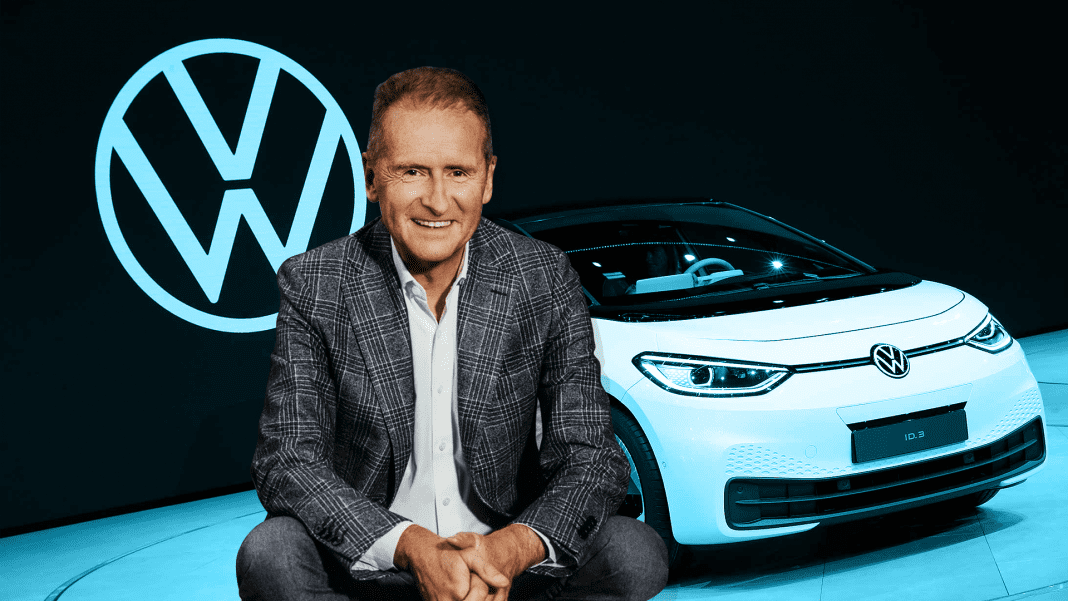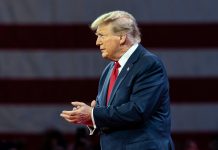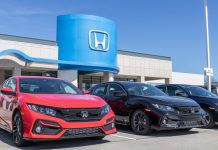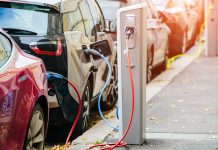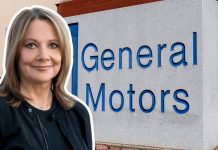Despite being one of the most profitable automakers last year, Volkswagen is now feeling immense pressure amidst the turmoil overseas. While high prices and environmental issues have been stressors for Volkswagen, the automaker’s Chairman Herbert Diess warned that the war in Ukraine is now having a notable detrimental impact on production. Factory shutdowns and parts shortages have forced a pause in operations in various countries, resulting in widespread production losses.
Diess recently discussed the ongoing issues in Ukraine and others, such as the electrification of Volkswagen vehicles, in an interview with Lesley Stahl of 60 Minutes.
Ukraine conflict causing disruptions for VW
Diess told Stahl the conflict in Ukraine has severely impacted Volkswagen’s supply of wire harnesses and other electric components, indicating that some of them are “very key” and that the automaker is “definitely” experiencing difficulty with the shortages. He added that shuttering operations in Russia was “quite a hard decision,” as Volkswagen has around 7,000 “loyal” employees in the country. He added that sanctions on Russia are the best option at this time “because what we see in Europe is really an appalling war.”
Stahl asked Diess about Volkswagen’s reliance on Russia for oil and gas, to which Diess responded that it might need to seek these products from other countries “short term” but likely needs to increase the usage of wind and solar energy long-term. He added that any ongoing unrest could be “quite severe” to Europe’s economy overall.
Transition to electric underway
Diess was asked about Volkswagen’s transition to electric vehicles. He responded that the automaker hopes to make a minimum of 100 EVs for all its brands, including Audi and Bentley vehicles. Diess also previously met with reporters in the US to show off Porsche’s new EV. Volkswagen North America’s CEO Scott Keogh said the company has plans to bring a “super cool, all-electric, crazy high-tech Passat” to North America.
When Stahl asked Diess about Volkswagen’s declining presence in the United States over the past few decades, Diess told her the automaker has “lost ground” and possibly “didn’t take the US customer seriously enough.” He admitted that there have been corporate discussions about leaving the US market, but stated that Volkswagen “[has] to become relevant in the US,” and a good start is introducing the ID.Buzz vehicle, which is an electric version of the “hippy bus” from the 1960s and 1970s.
Stahl pressed Diess on whether or not Volkswagen is working on an electric truck, but he said the automaker does not have plans to do so. Instead, he noted the focus on “having at least half [of Volkswagen’s] entire fleet be electric by the end of the decade” and “decarbon[izing] the world.”
Diess also touched on competition, which comes from other companies with a background in software and electronic components, including batteries for EVs.
Stahl asked Diess if he believes people have forgotten Volkswagen’s 2015 scandal in which millions of cars were found to have been made with software that would allow them to pass emissions tests even if they were not in compliance. Diess said the situation is a “long-lasting thing” and that Volkswagen will now have to “convince [its] customers that [it is] worthwhile considering, and [it is] delivering a good product.”
Diess also responded to Stahl’s inquiry about the criticism Volkswagen has received for conducting operations in an area of China that is being accused of human rights violations by saying the automaker does not agree with the treatment and that he is “absolutely sure” there is no “forced labor” in Volkswagen’s facility there.
Stahl then asked Diess about its place in the EV sales competition. He responded that Tesla is “quite ahead” and “growing fast,” which reportedly includes Tesla’s current production of a manufacturing plant in Berlin. Diess said, however, that he believes it is “very healthy” for Volkswagen to have competition.
Did you enjoy this article from Kimberly Hurley? Read other articles on CBT News here. Please share your thoughts, comments, or questions regarding this topic by submitting a letter to the editor here, or connect with us at newsroom@cbtnews.com.
Be sure to follow us on Facebook and Twitter to stay up to date or catch up on all of our podcasts on demand.
While you’re here, don’t forget to subscribe to our email newsletter for all the latest auto industry news from CBT News.


